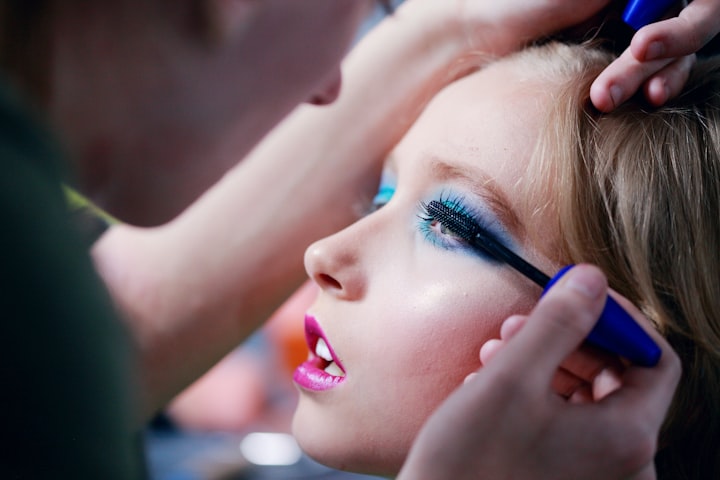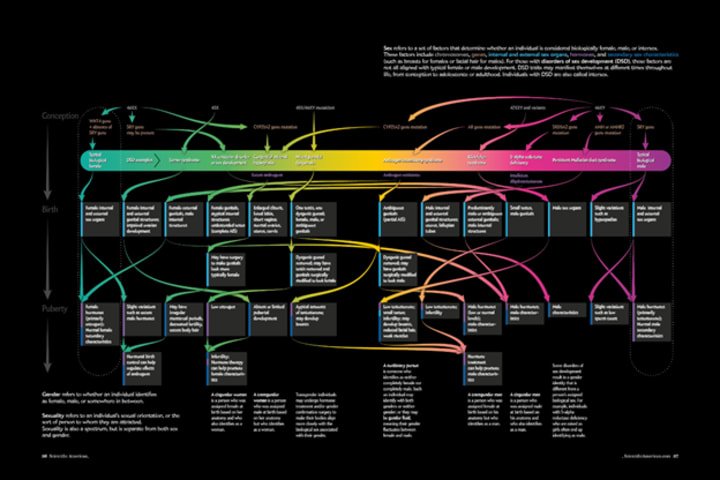Are People Really 'Transing' Kids?
The truth behind the 'transgender agenda' for children

If you want to believe what some people in the media are telling us, transgender people are out to brainwash the children and that parents who fall for it are perpetrating abuse. But what is really going on?
Surgery
The transgender ideology is leading our children to mutilate their genitals. At least, that’s what’s happening if you listen to people like Rand Paul, who seemed overly concerned about the mutilation of children when questioning Rachel Levine during her confirmation hearings.
Yet, most transgender people do not undergo any surgery before the age of 18, with the average age being around the age of twenty-nine. The youngest transgender people who have undergone surgery, such as Trinity Neal, were around 16 years old. Medical experts do not recommend performing these surgeries on anyone younger than that, since their bodies are still developing. No one in their right mind would give a child breast implants.
The blatant hypocrisy of these protests against gender-affirming surgery is stunning when no one bats an eye when these surgeries are performed on intersex infants when they are not medically necessary. Why is it okay for parents to decide to mutilate their infants’ genitals because they don’t think they look normal, but it’s not okay for a teen to choose surgery to make their bodies match their gender identity?
There are no protests from them against performing such surgeries on intersex infants because those children have genitals that don’t conform with their concept of normal. In their eyes, those children need to be fixed, although they were simply born different.
Ultimately, it’s because the issue surrounding transgender children has nothing to do with surgery or genitals at all. It’s a fear-mongering tactic that attempts to scare the public into supporting bans on gender-affirming surgery for transgender people. They focus on children, because that gets the most attention, even when it’s blatantly untrue.
Hormone Replacement Therapy
Next, the fearmongers will have you believe medical professionals are prescribing cross-sex hormones to children. First, prepubescent children don’t need hormones, so it’s senseless to prescribe them. Second, the Endocrine Society recommends not starting a transgender person on cross-sex hormones before the age of sixteen, although occasionally a teen as young as thirteen may get them prescribed, with parental approval.
The age a transgender teenager begins cross-sex hormones is a decision best left to their doctor, therapist, and their parents. Everyone matures through puberty at a different rate. Therefore, puberty blockers are a popular option for younger transgender teens, to give them the time they need to make sure moving forward with medical transition is the right path for them.
The fact is, prepubescent children are not taking cross-sex hormones. Only pubescent teenagers may have them prescribed, if it’s determined as necessary by their doctors and consented to by their parents. While some people may quibble over this detail in age, a child is, by definition, a young person between the age of infancy and puberty. Once they reach puberty, while they are still a minor, they are no longer considered a child from a medical standpoint. So, while some people argue that so-called crazy parents and doctors are doing this to children, they actually mean teenagers who are still under the age of majority.
Puberty Blockers
While some doctors may prescribe cross-sex hormones to teens as young as 13, that’s often not the case. Instead, if a child comes out as transgender, as they approach puberty, they have the option of taking puberty blockers to delay puberty temporarily.
Puberty blockers, also known as gonadotropin-releasing hormone (GnRH) antagonists, merely blocks the pituitary gland from releasing luteinizing hormone (LH) and follicle-stimulating hormone (FSH), which stimulate testosterone and estrogen production. Once patients stop taking these blockers, their pituitary goes back to normal.
Unfortunately, fearmongers like Tucker Carlson try to scare people into believing that temporarily delaying puberty through medication is harmful and grotesque. There have even been claims that these medications are sterilizing children.
The original purpose for puberty blockers was to treat children who are going through precocious puberty, when a young child experiences an early onset of puberty. There have been no incidents of infertility in children suffering from precocious puberty and treated with puberty blockers.
In fact, they have prescribed this medication as a treatment for prostate cancer, and to preserve the fertility of some women undergoing chemotherapy while on birth control. They are safe and have shown no links to infertility in the patients taking them. Therefore, puberty blockers are a safer alternative to cross-sex hormones for young transgender teens.
Gender Expression
When a child expresses that their gender does not conform to their biological sex, then allowing them to transition socially and express themselves through clothing, hairstyle choices, and name alterations is harmless. Given time, they may grow out of this, if it doesn’t fit who they are as they get older. They may not, but it gives them time to explore what feels right and gives people around them time to adapt if this is truly who they are.
However, this requires no medical intervention to allow a child to explore their gender and find what makes them the most comfortable. Decisions for medical treatments don’t need to happen until they approach puberty. Even then, as mentioned earlier, medication can safely pause their puberty until they are ready to decide which path is right for them.
It is unethical to force any child to conform to societal gender norms, regardless of their birth sex. This includes intersex children, who endure genital surgery in infancy and forced to conform to a specific gender, although their biology puts them into a category other than simply male or female.
The world is not as simple as people want it to be. Not only are gender and sexuality on a spectrum, but biological sex is as well. There are many shades of gray, and the complexity of life is difficult to file and categorize into neat little boxes, no matter how much some people try.

Listen to Your Kids
The biggest disservice any parent can do is to not listen to their children. Don’t let some fearmonger tell you what’s best for your children and don’t let them convince you that medical professionals are behind some unfounded conspiracy. Instead, talk to your children and listen to what they have to say. They know themselves better than anyone, and children understand gendered concepts much earlier than most people realize. They can easily recognize the difference between feminine and masculine concepts as early as eighteen months and have a general concept of their own gender by the age of three.
“While children might go through periods of insisting that they are the opposite gender of their birth sex, if they continue to do so it was likely never a phase.” — Mayo Clinic Staff, Children and gender identity: Supporting your child
So, stop second guessing your children and give them the benefit of the doubt. If their gender incongruence persists, then find a therapist to help your child work through their gender identity. Whatever you do, don’t threaten, punish, or withhold your love, even if you feel angry or confused. Instead, educate yourself or sit down with a therapist as well.
More than your guidance, your children need your love, support, and understanding. Growing up with a gender incongruence is hard enough without also feeling like an outcast within their own family. Don’t let the fearmongers of the world turn you against your own children.
About the Creator
Grayson Bell
An autistic, gay, transgender man writing about LGBTQ issues, focused on the transgender community. (He/Him) http://graysonbell.net/






Comments
There are no comments for this story
Be the first to respond and start the conversation.